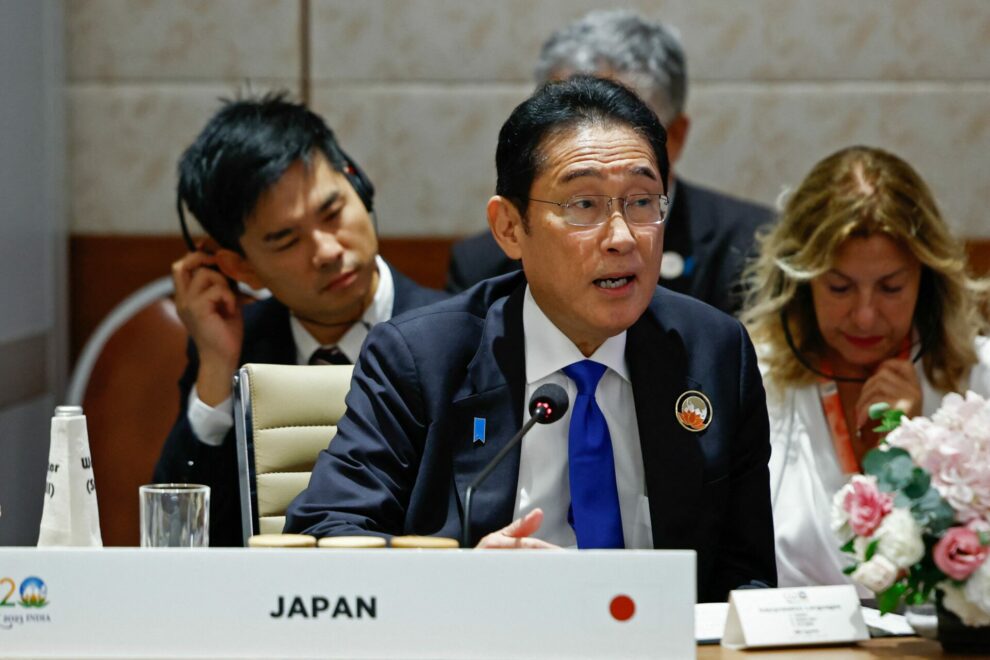The Group of 20 leaders ended their two-day summit on Sunday, with Japanese Prime Minister Fumio Kishida stressing that he has secured the understanding of other nations on the safety of the release of treated radioactive water from the crippled Fukushima nuclear plant.
While China has claimed the water discharge into the sea will harm the maritime environment and human health, Kishida said at a press conference after the conclusion of the summit in New Delhi that Tokyo will make efforts to build “stable” relations with Beijing.
Kishida, however, added Japan will continue urging China to swiftly lift a blanket ban on Japanese seafood imports, which was quickly imposed after the beginning of the water release in late August, asking Beijing to take “responsible” actions.
The G-20 summit came amid deepening divisions among member countries over Russia’s ongoing invasion of Ukraine. The crisis has disrupted energy and food security worldwide and destabilized global economic conditions since February 2022.
There had been concern that the G-20 leaders would fail to finalize a declaration during the summit, diplomatic sources said, but they managed to adopt it on Saturday by agreeing to avoid condemning Russia’s aggression against Ukraine.
If the G-20 had fallen short of producing a joint statement, it would have been the first time since its inaugural summit in 2008.
As India, the chair of the G-20 this year, has been eager to maintain amicable ties with Russia due to its reliance on Moscow for military supplies and energy resources, there was speculation that New Delhi was reluctant to craft a declaration, the sources said.
Prime Minister Narendra Modi said in his closing speech on Sunday that India has been willing to hold a virtual session by the end of November when the South Asian nation hands over the presidency of the G-20 to Brazil.
In 2023, the G-20 did not hammer out joint statements at several ministerial gatherings under India’s presidency.
At the latest G-20 summit, meanwhile, the leaders approved the inclusion of the African Union as a permanent member, as India has placed emphasis on consolidating relations with emerging and developing economies in the “Global South.”
Russian President Vladimir Putin and Chinese President Xi Jinping skipped the G-20 meeting, while leaders such as Kishida, who hosted the Group of Seven summit in Hiroshima in May, and U.S. President Joe Biden participated.
As for the Fukushima discharge, China has criticized Japan for disposing of “nuclear-contaminated water” into the Pacific Ocean from the power plant, which suffered meltdowns following a devastating earthquake and tsunami in March 2011.
Since late August, there has been a noticeable increase in Japan in incidents involving nuisance phone calls that appeared to originate from China.
A Japanese government official quoted Kishida as saying at a session of the G-20 summit on Saturday, “A certain country has been engaging in unconventional actions,” a comment seemingly directed at China.
Along with the G-7 — Britain, Canada, France, Germany, Italy, Japan and the United States plus the European Union — the G-20 includes Argentina, Australia, Brazil, China, India, Indonesia, Mexico, Russia, Saudi Arabia, South Africa, South Korea and Turkey.
Source : Kyodo News










